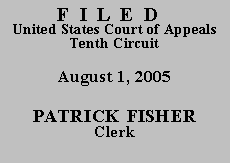

| UNITED STATES OF AMERICA, |
|
On June 24, 2002, the district court sentenced Mr. Chavez to 78 months' imprisonment to be followed by four years of supervised release. At that time, Mr. Chavez was serving an Illinois sentence, but had been released to federal authorities pursuant to a writ of habeas corpus ad prosequendum. Mr. Chavez spent two years with federal authorities. Because Mr. Chavez would not receive credit for those two years on his federal sentence (as that time was being credited to his Illinois sentence, 18 U.S.C. § 3585), he sought a downward departure. The district court denied his motion for downward departure, but sought to give him credit by sentencing him to the low end of the Guidelines range (78 months) and allowing the federal sentence to run concurrent with the state sentence pursuant to U.S.S.G. 5G1.3(c).
Mr. Chavez subsequently filed his 2255 motion alleging that he had received ineffective assistance of counsel because he did not receive credit on his federal sentence for the two years spent in federal custody, and his counsel failed to press various Interstate Agreement on Detainers (IAD) issues. He maintained that he was unaware that he would not receive credit for the two years until presented with a sentence computation in federal prison. The district court denied the 2255 motion on the merits, which it alternatively construed as an application for writ of habeas corpus under 28 U.S.C. 2241, and dismissed the action with prejudice. The district court concluded that Mr. Chavez's motion was based upon the mistaken belief that service of his federal sentence began two years later, rather than when the district court sentenced him (June 24, 2002). Doc. 8 at 2.
To demonstrate ineffective assistance of counsel, Mr. Chavez must show deficient performance of counsel and resulting prejudice. Strickland v. Washington, 466 U.S. 668, 687 (1984). On appeal, he recognizes that the district court did attempt to give him credit for the two years in federal custody by making the federal sentence concurrent with the state sentence he was serving. Brief and COA at 19. He argues that had counsel invoked the 1994 version of U.S.S.G. § 5G1.3(c) and ex post facto principles, the district court would have been required to reduce his sentence (based upon the time already served on the Illinois sentence). The district court's implicit rejection of this claim is not reasonably debatablethe district court was not required to adjust Mr. Chavez's federal sentence (for conspiracy to distribute cocaine in New Mexico) by the amount of his discharged Illinois sentence for a subsequent narcotics offense.
Accordingly, we DENY the application for COA and DISMISS the appeal.
Entered for the Court
Paul J. Kelly, Jr.
Circuit Judge